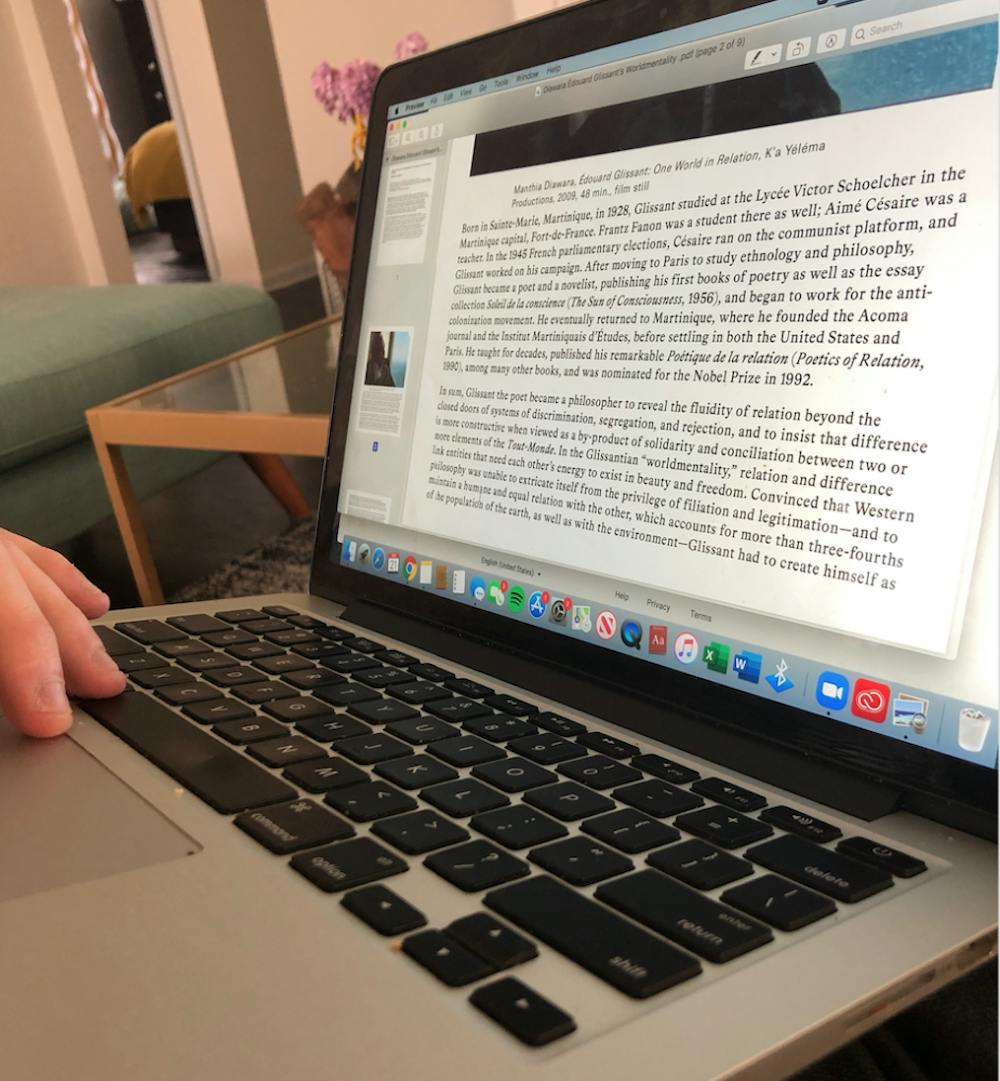Tao Dumas, an assistant professor of political science, was forced to completely rework her syllabi and lesson plans once the COVID-19 pandemic reached its boiling point.
“When planning an online class, I think of it as a completely different course than my in-person one,” Dumas said. “So, trying to convert an in-person class to an online one, in my opinion, doesn’t work very well.”

While many have found that online meeting software, such as Zoom and Google Classroom, are easy to learn, professors are still finding it difficult to conduct classes virtually and facilitate an engaging environment for students.
“The technology we currently have at the College for online meetings (Zoom, Canvas Conferences) is also not ideal for larger groups,” said Dumas. “I’m finding it challenging to have discussions and keep student engagement up.”
This unexpected switch to online learning is bringing on a host of challenges for both students and faculty alike. For many courses, assignments and lesson plans revolve around students being actively present.
Some students with more hands-on majors are forced to miss out on long-awaited milestones in their academic careers. For Brian Marino, a senior mechanical engineering major, the worst part of remote learning is the end of engineering senior projects.
Beginning on Accepted Students day, engineering students are told to look forward to conducting their senior projects, which give them a chance to showcase the collective knowledge they’ve acquired during their time at the College.
All rising engineering seniors are split into teams — some brainstorming ideas for the project as early as the summer. For the majority of seniors, the spring semester was their time to build the project.
“It’s like if you write a recipe to cook and you prove it’s gonna taste great, but you're not allowed to cook it,” Marino said.
Similarly, education majors are dealing with an unprecedented change in their academic track, as practicum and student teaching has been cancelled or moved online.
“Ultimately, I feel like I am missing out on the hands-on experiences the most,” said Maureen Gilkin, a senior early childhood special education and math dual major, who is currently student teaching. “We learn a lot about being a teacher through our classes with our professors, but I have learned the most through being physically in the classroom with the kids.”
Switching to online instruction has proved to come with a significant learning curve, especially for professors whom have never taught remotely.
“As faculty, I never taught a class online before,” said John Krimmel, an assistant professor of criminology at the College. “I needed to re-do all my classes as well as learn the software.”
Art majors are also suffering from online classes, as students are instructed to work with whatever materials they have in their homes. Art supplies are notoriously expensive, and even if students can afford to buy their own supplies, these materials are considered non-essential and are difficult to locate.
“Online learning has made me want to rush through my art projects and get them done as an assignment checkpoint rather than a creative outlet and release,” said Maddie Wyville, a senior art education major.
In an attempt to work with the administration and make this semester continue as smoothly as possible, Student Government (SG) compiled feedback from students on remote instruction.
According to SG Executive President Patty Kou, students have been giving a variety of responses about online learning, some having an easier time than others. According to Kou, the range of responses can be attributed to several factors, including technological resources, home life and academic coursework.
“Whether they are stressed about how to adjust to online labs, clinical, or a ramp-up in work, I think students are feeling the pressure of wanting to do well, but not all students have the same resources available to them,” she said.
Amidst all the chaos, professors and students seem to be coming together, communicating frequently and fostering a supportive environment.
Amanda Felten, a sophomore history and secondary education dual major, shared that her professor, Cynthia Paces of the history department, has shown genuine care during the transition to online learning.
“She often reaches out outside of class time and spends the beginning of every class checking in on us,” Felten said. “She's also been one of the few professors who have voiced their struggles and been very honest about the transition, which makes me as a student feel much more valid in my frustration. Extensions on assignments, exceptional understanding and her genuine care for her students have made this time much more bearable. I honestly look forward to her class every week.”







